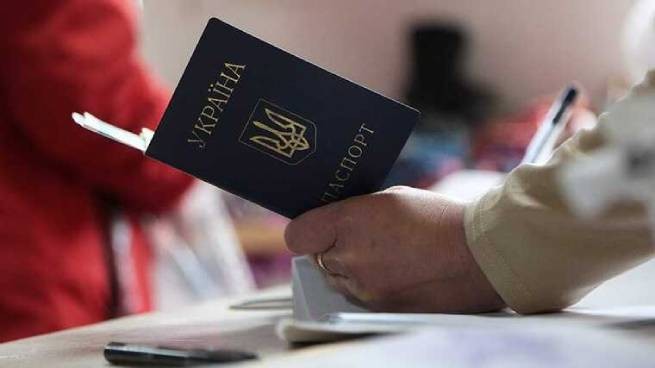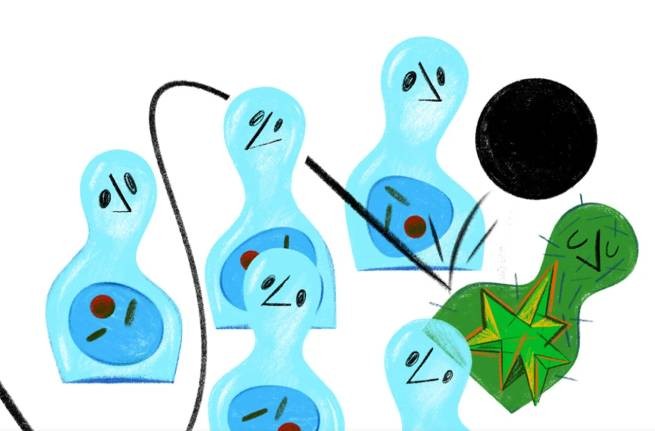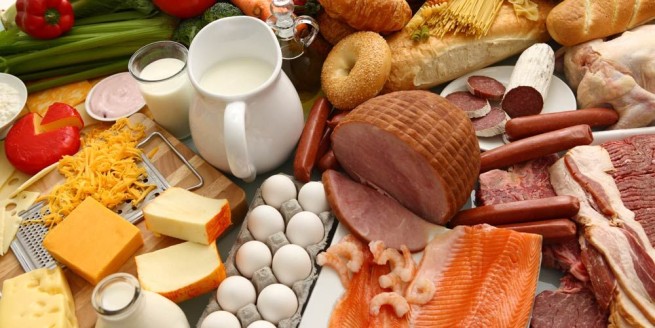Easter is celebrated on May 5 this year. This means that Lent will end and a lot of different food will appear on the table. You need to break fast correctly so as not to harm your health. However, those who have not fasted should also pay close attention to their diet.
During fasting, people abstain from eating fats and meat. And at Easter lunch, most dishes contain both. And a sudden transition to the menu can lead to an overload of the body.
In particular, patients with cardiovascular disease face a number of health risks associated with the Easter table and dietary excesses. Patients need to know that Excessive intake of fat and salt can contribute to the occurrence of pulmonary embolism after 2-3 days. For this reason, it is very important that if they experience shortness of breath or excessive fluid retention, they seek medical help immediately, recommends cardiology professor Giorgos Kochiadakis, president of the Hellenic Society of Cardiology.
Too much saturated fat can also threaten your health. Their high consumption leads to increased levels of bad cholesterol (LDL). This can lead to the formation of atherosclerotic plaques in the arteries, which block blood flow and increase the risk of heart attack and stroke.
A traditional Easter dish, lamb is rich in saturated fats. For this reason, be sure to remove the skin from your serving of meat or, if possible, opt for goat meat. Also combine eating meat with plenty of green vegetables, which:
- have an antioxidant effect,
- satisfy hunger,
- neutralize the thrombogenic effect of lipids.
Even more dangerous is large accumulation of fat at night, as it is associated with strokes and heart attacks. To avoid fatty foods, you can eat a piece of fruit or some nuts some time before sitting down to the holiday table. This way the feeling of hunger will be reduced. you also can Start your meal with a hearty green salad or boiled vegetables.
Maintaining a healthy weight is very important for patients with cardiovascular disease. Obesity and abdominal fat are serious risk factors. It is very important that citizens adhere to a properly balanced diet with calorie calculations. This way, the foods you consume will provide you with healthy nutrients rather than fat, cholesterol, etc.
What to pay attention to at the Easter table – G. Kochiadakis briefly gives the following advice:
- Avoid eating lamb. While sitting at the Easter table, enjoy your food, chew it slowly to ease digestion and fill you up faster.
- A dish that will fill you up without loading you with a lot of calories is grilled meat (preferably goat, without skin and visible fat). Avoid eating large amounts of potatoes, pasta and bread along with meat.
- Accompany the meat with plenty of salad. Fresh vegetables and leafy greens promote satiety and provide health benefits due to their fiber and nutrients. The salad does not contain many calories (unless it is dressed with complex sauces or mayonnaise).
- Add olive oil to salads and meals. It is rich in monounsaturated fats, which have a cardioprotective effect, and phenols, which have a beneficial effect on heart function.
- Avoid eating white bread. It provides additional “empty” calories. Prefer moderate consumption of whole grain or rye bread.
- Be careful when eating holiday sweets. Buns, chureki, etc. are very high in calories.
- Don't add salt to your food. Lamb and other Easter dishes are usually over-salted. Remove the salt shaker from the table. Enhance the flavor of your food with spices and herbs (eg fresh oregano, thyme).
Patients with cardiovascular disease should also be careful with drinks. Mr. Kochiadakis recommends the following:
- Watch what you drink. Do not mix different drinks such as tsipouro, raki, wine and beer. The recommended daily dose is two drinks for men and one for women. Give preference to red wine, which has an antioxidant effect.
- Drink plenty of water and calorie-free soft drinks. Avoid juices and soda. Drinking clean water will help you feel full without burdening your body with useless, harmful ingredients like sugar and preservatives. Ultimately, by drinking water and staying properly hydrated, you are protecting your heart.
Thus, people with cardiovascular diseases can consume everything in moderation, but it is advisable to eat healthy foods. “Choose lean meats, salads with olive oil and avoid sweets. Eat slowly and give yourself time to feel full,” the professor recommends.







More Stories
EODY: Recommendations for protecting yourself from West Nile virus and how it is transmitted
Colon cancer: 500% increase in incidence in children and adolescents
Why you should add small fish to your diet